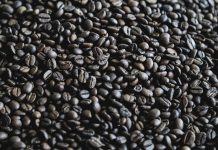A common complaint that some people experience when they drink coffee is a feeling of tiredness that seems to contradict the notion that coffee helps to keep a person awake. These people are often confused about why coffee would produce this effect. After all, caffeine is a known stimulate, and depending upon the coffee drank, contains approximately 95-milligrams of caffeine for every 8-ounces of coffee. We, too, were quite confused by this phenomenon, so we decided to investigate it further, and what we discovered was that there are some very good reasons why coffee might be making a person tired throughout the day.
Reason #1: Coffee Is A Diuretic
One of the first reasons why coffee may be making a person tired is because coffee is a slight diuretic. This means that it causes the person that dranks it to pass more urine than if they hadn’t ingested it in the first place. Anyone who drinks any amount of coffee knows that this is a fact, so it shouldn’t be a surprise to anyone. What is most likely a surprise, however, is that this might mean that the coffee is making the person drinking it slightly dehydrated—and it’s this dehydration that can cause tiredness.
The best way to counter the potentially dehydrating effects of coffee is to limit the amount of coffee drank throughout the day and to increase your water intake. In most cases, this small change in behavior can counter the sleepiness that can be caused by coffee’s slight dehydrating effect on the coffee drinker.
Reason #2: Coffee May Block Adenosine
Another common cause for “coffee tiredness” is because of the build-up of a little chemical called Adenosine. Normally, Adenosine is a chemical that the body uses to regulate the central nervous system. As a person goes throughout their day, Adenosine builds up and this build-up alerts the central nervous system that it’s time for bed. After a person goes to sleep, their Adenosine levels than begin to rise until it’s at a level that alerts the person’s brain it’s time to get up.
It’s this rise and fall of Adenosine that keeps a person’s sleep/wake cycle properly tuned. However, caffeine tends to disrupt that natural process a little bit by preventing Adenosine from binding to receptors in the brain. This chemical doesn’t go away, however. Instead, it continues to build-up. When the coffee drinker stops drinking coffee and their caffeine levels drop, then there’s nothing preventing Adenosine from binding to its normal receptors and they tend to do so all at once. This creates a feeling of sudden tiredness after the person has stopped drinking coffee.
A solution for preventing this from happening is to drink a decaffeinated coffee. Although decaffeinated coffee always has some caffeine in them, it’s generally small enough that it doesn’t prevent too much of a disruption to Adenosine receptors in the brain.
Reason #3: It Might Not Be The Coffee At All
The last reason that some people get tired after drinking coffee has nothing to do with the coffee itself but is more than likely what they add to that coffee. Sugar can produce a “crashing” effect that can make a person feel like they’re getting tired. A way of preventing that from happening is by switching to black coffee or moving to an artificial sweetener.



















